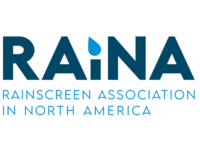The International Code Council, the developer of the most widely used and highly regarded set of building safety codes and standards in the world, is currently accepting code change proposals for the development of its 2024 International Energy Conservation Code (IECC) and Chapter 11 of the International Residential Code (IRC). As established through the Code Council’s recently released energy efficiency framework, Leading the Way to Energy Efficiency: A Path Forward on Energy and Sustainability to Confront a Changing Climate, the 2024 IECC and Chapter 11 of the IRC will be updated using the Code Council's American National Standards Institute (ANSI) approved standards process.
The 2024 edition will continue to build on the success of the prior editions allowing the IECC to remain a strong avenue for communities to reach their energy efficiency and sustainability goals globally. As part of the 2024 development process, code change proposals will be asked to include an assessment of cost effectiveness in accordance with the intent statement of the IECC and shall consider any changes to the code as they impact the building owner, occupants and the energy system as a whole. Additionally, the Residential Energy Code Consensus Committee and a Commercial Energy Code Consensus Committee shall adhere to the Code Council Board approved intents and scopes outlined in the framework.
“The IECC in conjunction with the Code Council’s recently released framework are invaluable resources for communities to reduce their greenhouse gas emissions and achieve their energy efficiency goals,” said Dominic Sims, CBO, Chief Executive Officer of the Code Council. “Understanding this, the Code Council is committed to providing the necessary processes and forums to enable the continued development and maintenance of these tools and resources such as the IECC.”
Additionally, the Code Council is seeking public input on an electrical vehicle (EV) charging resource, the first in a series of energy efficiency and greenhouse gas emission resources as outlined in the Code Council’s framework. Covering residential, commercial and multifamily applications, the resource provides communities flexibility in determining the best combination of EV-Installed, EV-Ready and EV-Capable spaces. The Code Council staff draft is based on input from stakeholders, code change proposals considered for the 2021 IECC and policies already implemented in some jurisdictions. It also captures information on approaches states and localities have already taken to help support other jurisdictions considering use of the language and provides communities with model language coordinated with the International Codes (I-Codes) to help achieve additional GHG reductions. Comments on the EV resource are due August 16th. Access the draft and instructions for commenting: here.
Modern building codes require input from professionals throughout the building pipeline to be effective. Participation from various stakeholders in an equitable, accessible and responsive environment is key in developing a consensus standard that all of society will find impactful. The Code Council urges all interested parties from building safety professionals to government officials and concerned citizens to submit a code change proposal and engage in the development process.
Code change proposals will be accepted until 11:59 pm PT on October 12th. To submit a code change proposal, please visit the new energy only version of cdpACCESS here. For additional information on the Code Council’s energy initiatives, the framework and related FAQs, visit www.iccsafe.org/energy.






.png?height=200&t=1730137810&width=200)